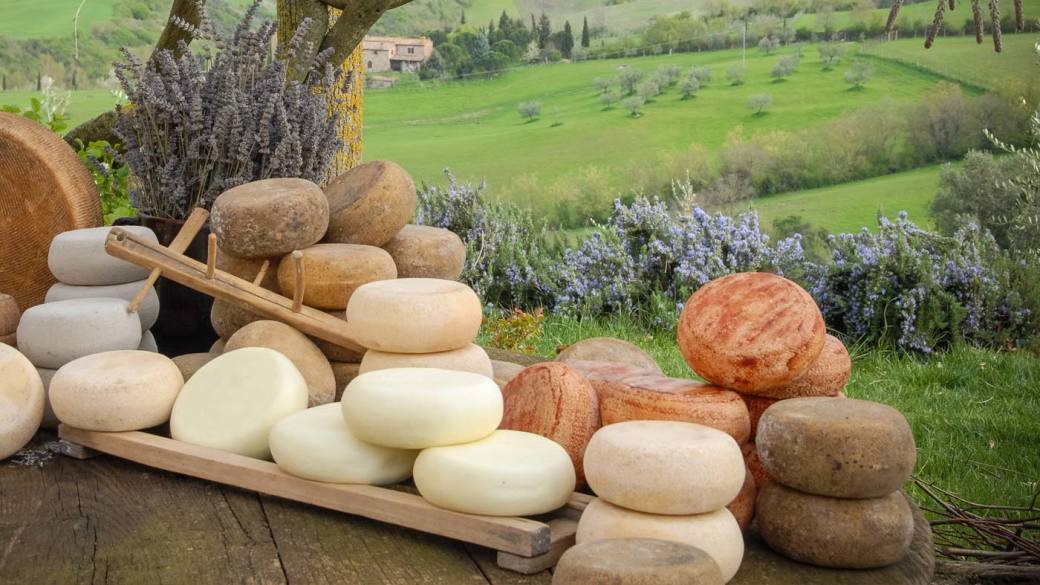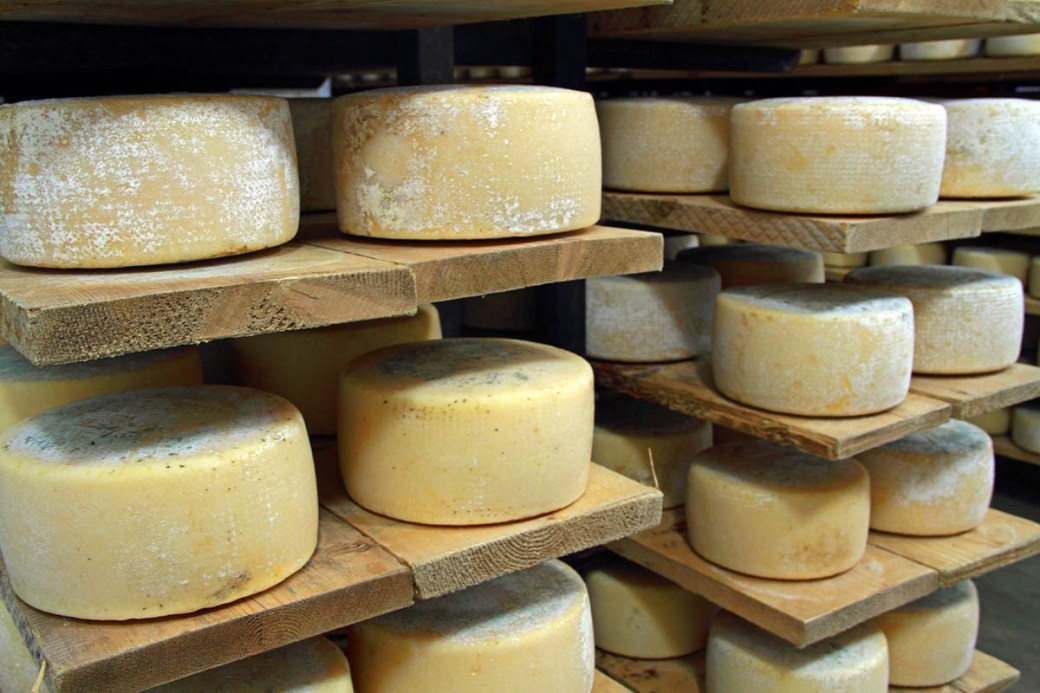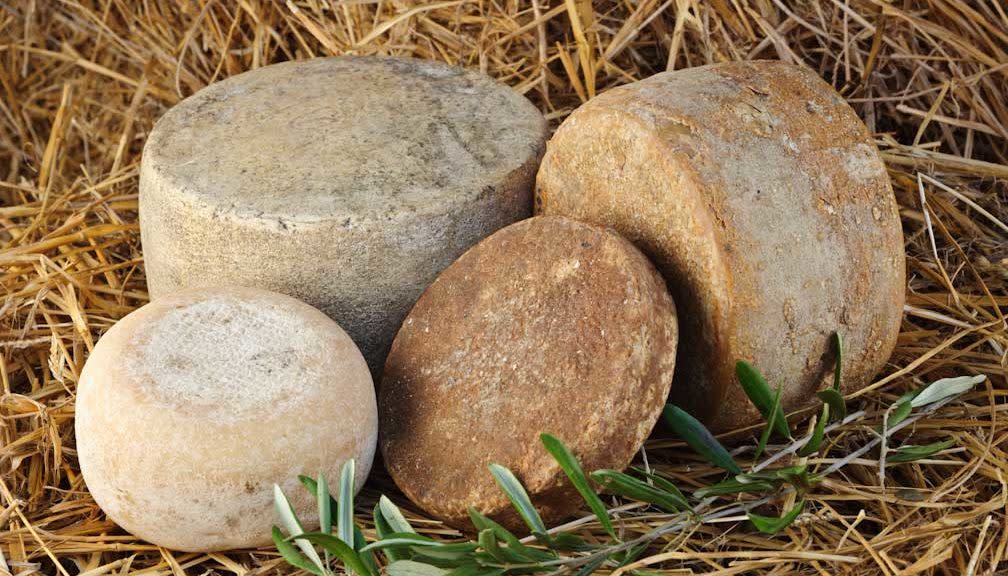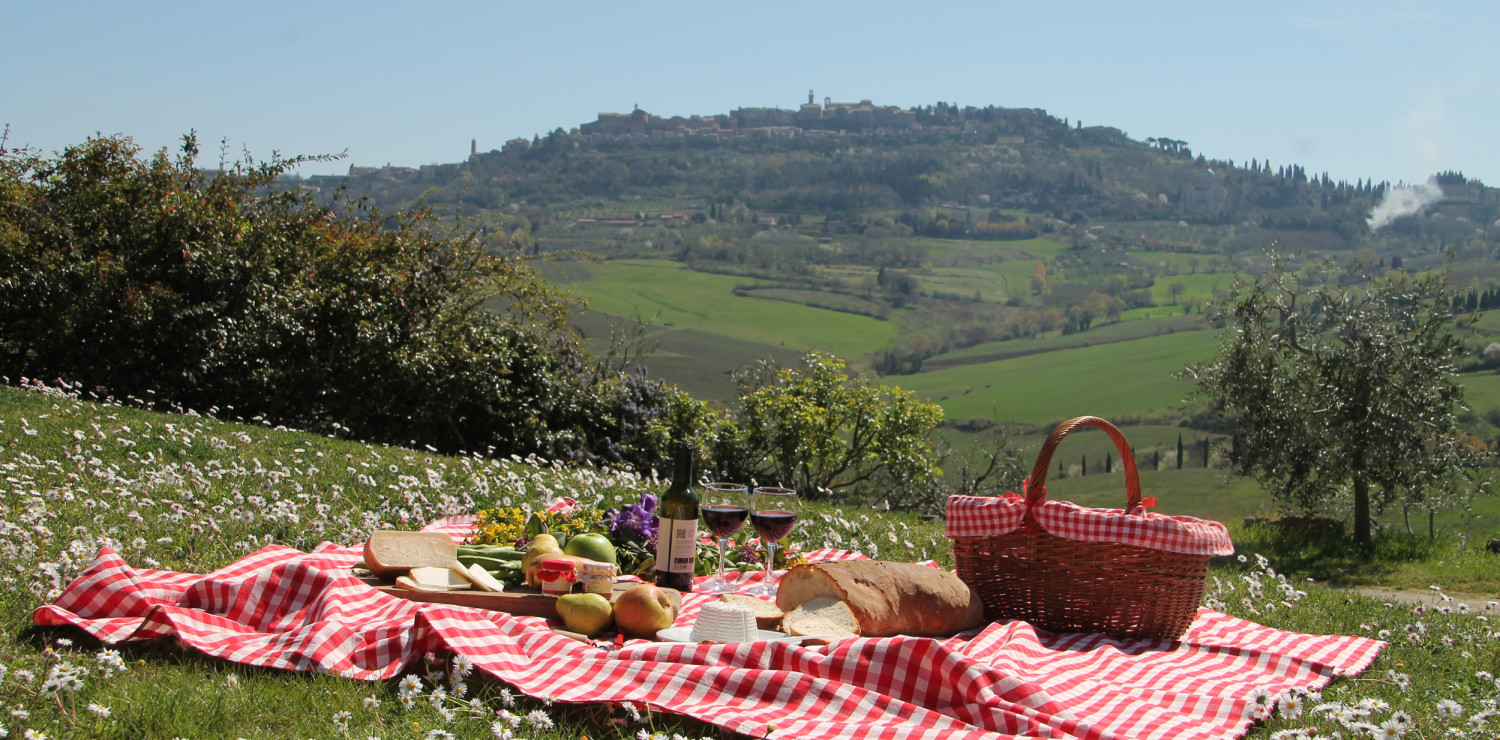Tuscan Pecorino. We teach you how to recognise it
A small handbook to get to know the types and areas of production in Tuscany to know what to ask for from gastronomy
Wine, Tuscan pecorino cheese, slices of fresh bread, a blanket spread out on a green lawn and you have the most romantic day in spring! But which pecorino cheese to choose?
 Pecorino Toscano cheese
Pecorino Toscano cheese
The variety of Tuscan pecorino cheeses is so wide that finding yourself in front of the cheese counter of a delicatessen and not knowing what to ask for is a common experience. The first thing to do is to know how to find your way around the maturation periods and to know the varieties from the different production areas.
WHAT IS TUSCAN PECORINO CHEESE?
Pecorino, one of the best known and appreciated Tuscan cheeses, is produced with 100% sheep's milk, which must be coagulated with calf's rennet and must come from certain breeds of sheep, such as the "Massese", the "Comisana" and the "Sarda". The shape is always round, with a diameter ranging from 15 to 22 cm, a height between 7 and 11 cm and a weight ranging from 0.75 to 3.5 kg.
AGEING OF THE CHEESE
 Pecorino Toscano Cheese
Pecorino Toscano Cheese
The most important sheep's cheese in Tuscany, it has been protected by a PDO since 1996 and is offered in two types:
fresh (matured from 10 to 20 days), soft with a very delicate flavour, slightly acidulous, edible rind, it can be used as a melting cheese and is a real speciality if grilled.
semi-mature (aged between 4 and 5 months) during the maturing process it develops a delicate aroma and the rind is treated with olive oil. Perfect with pods and raw artichokes in penzimonio.
Matured (over 5 months) with a spicy flavour and marked aftertaste, the longer the maturation period, the harder and tastier the cheese becomes. It is ideal to accompany honey and jams.
riserva (matured for at least 1 year) the rind is treated during the maturing process with olive oil and is greyish. The paste is straw-coloured and very compact. Spicy flavour and marked aftertaste. A perfect meditation cheese to accompany a peat whisky.
Aromatic sheep cheeses aged in walnut leaves, aromatic herbs, spices, ashes, marc, hay, bran and so on.
 pecorino a latte crudo della montagna pistoiese
pecorino a latte crudo della montagna pistoiese
LOCAL VARIETIES
Some of the most popular cheeses and most deeply rooted in the local tradition are:
Abbucciato Made with sheep's milk from the Casentino - according to tradition, it was produced by Camaldolese monks as early as the 11th century; pecorino cheeses from Casentino and Arezzo are particularly fragrant with the herbs, flowers and plants of the mountains.
Raw milk Pecorino is a mature cheese made from unpasteurised milk with a soft texture. It originates from the Pistoia area, where about twenty producers operate (Slow Food Presidium - Pistoia Mountains and Valleys Consortium). It is produced in three variants: fresh, abbucciato and da asserbo.
Caciotta is a common recipe that requires the use of sheep's and cow's milk, and a very short time to break the curd. The most common ones are produced in the Monte Amiata, Siena and Lunigiana areas, and it is possible to find caciotta with spices (with black peppercorns, truffles or chilli) as well as "aged" according to different techniques (ash, hay, wine or leaves).
The Grande Vecchio di Montefollonico comes from Montefollonico in the province of Siena. It is aged and tends to spicy. The shape is a little bigger than normal, ranging from 5 to 8.5 kg and has a diameter of 25/30 cm. The milk must come from sheep reared in the open air and fed with grass from meadows and pastures. In this area you can also find the "Pecorino seasoned in walnut leaves", a real delicacy!
Pecorino delle Balze Volterrane is a niche pecorino, produced in a handkerchief of land between five municipalities in the province of Pisa with Volterra at its epicentre. It is made by a dozen producers, including the organic Fattoria Lischeto. It is the only Italian cheese with a denomination of origin made only with vegetable rennet from the flower of the wild thistle.
Pecorino di Pienza the notoriety enjoyed by this jewel of the Italian Renaissance in the Val d'Orcia, with its historic centre, a UNESCO World Heritage Site, crowded in every season, does not detract from the typicality of this ancient cheese that reaches peaks of excellence in some niche productions such as Silvana Cugusi, Podere Il Casale, Fattoria Pianporcino. It can be found in all variations. The red version, one of the most typical, is made by rubbing the cheese skin with tomato.
 Pecorino di Pienza cheese
Pecorino di Pienza cheeseMarzolino produced in March/April or with the first fresh milk of the season, with a sweet flavour and aromas of fresh grass on which the sheep have been fed. The most popular are Marzolino Del Chianti: brown rind and tasty paste. Marzolino di Lucardo: produced in the areas of Lucardo, Certaldo, San Gimignano and Val d'Elsa. Marzolino di Pienza: oval rather than round in shape, matured for about 10-20 days.
But in Tuscany every rural area has its own percorino. Let's see which are the most known: the pecorino from Lunigiana, mentioned by Pliny the Elder in his Naturalis Historia, the pecorino from the Apuan Coast or Massese, the pecorino from Garfagnana and the hills of Lucca (also called baccellone), the pecorino from the Park of Migliarino San Rossore, the flowered rind or toad skin pecorino, produced in the municipality of San Casciano Val di Pesa, the Fossa del Greppo, produced in the area of Montepulciano, the raw milk pecorino of the Maremma Slow Food Presidium, and that of the Roccalbegna cellars.
WHERE TO TASTE THEM
Il Palagiaccio, Senni-San Carlo, 40, Scarperia e San Piero, Florence tel 055 849 4418 Production of wine and cheese, tasting & sales
Corzano e Paterno, Via S Vito di Sopra, San Casciano Val di Pesa, Florence tel 055824 8179 Wine and cheese production, tasting & sales
Podere S Anna, SP 34/b, km 5, Monteroni d'Arbia, Siena tel. 0577 378007 Production, tasting & sale
Cugusi, Via della Boccia, 8, Montepulciano, Siena phone 0578 757558 Production, tasting & sale
Podere Il Casale, Via Podere Il Casale, 64, Pienza, Siena tel. 0578 755109 Production, tasting & sale
Fattoria Pianporcino, località Pianporcino, 109, Pienza tel, 347 911 7382 Production, tasting & sale
Caseificio Il Fiorino, Localita' Paiolaio Roccalbegna, Grosseto tel 0564989059 Production of wine and cheese, tasting & sale









